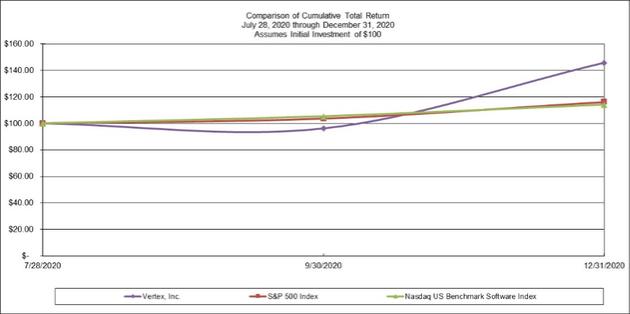customers and potential customers experience financial hardship as a result of a weak economy, industry consolidation or other factors, the overall demand for our solutions could decrease. If economic conditions worsen, our business, results of operations, financial condition and cash flows could be harmed.
Natural disasters, epidemic outbreaks, terrorist acts and political events could disrupt business and result in lower sales and otherwise have a material adverse effect on our business, financial performance and results of operations.
The occurrence of one or more major natural disasters, unusual weather conditions, epidemic outbreaks, terrorist attacks or disruptive political events, each of which is out of our control, may result in reduced consumer and supplier spending and transactions, which in turn could cause our revenues to decline and our business to suffer. Natural disasters including tornados, hurricanes, floods and earthquakes may damage the facilities of our customers or those of their suppliers or retailers or their other operations, which could lead to reduced revenue for our customers and thus could result in declines in our revenue that is aligned with customer transaction volume. In addition, a global epidemic outbreak may have a material adverse effect on global economic conditions, consumer spending and the stability of global financial markets. For example, in December 2019, a novel strain of coronavirus ("COVID-19") appeared. The COVID-19 pandemic is continuing to have widespread, ongoing rapidly evolving and unpredictable impacts on global society, economies, financial markets and business practices. Federal and state governments have implemented measures in an effort to contain the virus, including social distancing, travel restrictions, border closures, limitations on public gatherings, work-from-home, supply chain logistical changes and closure of non-essential businesses. To protect the health and well-being of our employees and customers, substantial modifications were made to employee travel policies, our offices were closed and employees advised to work-from-home and conferences and other marketing events were cancelled or shifted to virtual-only. These protective actions remain in place to date. The COVID-19 pandemic has impacted and may continue to adversely impact our operations, including our employees, customers and partners, and there continues to be substantial uncertainty in the nature and degree of its continued effects over time. The extent to which the COVID-19 pandemic impacts our business going forward will depend on numerous evolving factors that cannot reliably be predicted, including (i) the duration and scope of the pandemic; (ii) governmental, business, and individuals’ actions in response to the pandemic; (iii) the global availability and efficacy of a COVID-19 vaccine; and (iv) the impact on economic activity, including the ongoing possibility of recession or financial market instability. These factors may adversely impact consumer, business and government spending on technology as well as customers' ability to pay for our products and services on an ongoing basis. Similarly, terrorist attacks or disruptive political events, such as the imposition of retaliatory tariffs or governmental trade or price manipulation, could cause our customers, or their customers, to defer spending plans or otherwise reduce their economic activity. If any of the foregoing risks were to be realized, it could have a material adverse effect on or business, financial performance and results of operations.
We are subject to anti-corruption, anti-bribery and similar laws and noncompliance with such laws can subject us to criminal penalties or significant fines and harm our business and reputation.
We are subject to requirements under the U.S. Treasury Department's Office of Foreign Assets Control, anti-corruption, anti-bribery and similar laws, such as the FCPA, the U.S. domestic bribery statute contained in 18 U.S.C. § 201, the U.S. Travel Act, the USA PATRIOT Act, the U.K. Bribery Act 2010, and other anti-corruption, anti-bribery and anti-money laundering laws in countries in which we conduct activities. Anti-corruption and anti-bribery laws have been enforced aggressively in recent years and are interpreted broadly and prohibit companies and their employees and agents from promising, authorizing, making, offering or providing anything of value to a "foreign official" for the purposes of influencing official decisions or obtaining or retaining business, or otherwise obtaining favorable treatment. As we increase our international operations, our risks under these laws may increase. Non-compliance with these laws could subject us to investigations, sanctions, settlements, prosecution, other enforcement actions, disgorgement of profits, significant fines, damages, other civil and criminal penalties or injunctions, adverse media coverage and other consequences. Any investigations, actions or sanctions could harm our business, results of operations, financial condition and cash flows.
In addition, in the future we may use third parties to sell access to our software and conduct business on our behalf abroad. We or such future third-party intermediaries may have direct or indirect interactions with officials and employees of government agencies or state-owned or affiliated entities, and we can be held liable for the corrupt or other illegal activities of such future third-party intermediaries, and our employees, representatives, contractors, partners and agents, even if we do not explicitly authorize such activities. We cannot provide assurance that our internal controls and compliance systems will always protect us from liability for acts committed by employees, agents or business partners of ours (or of businesses we acquire or partner with) that would violate U.S. and/or non-U.S. laws, including the laws governing payments to government officials, bribery, fraud, kickbacks, false claims, pricing, sales and marketing practices,
